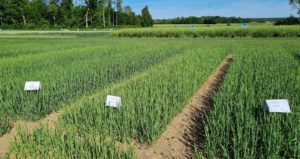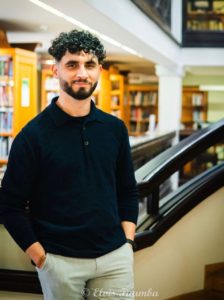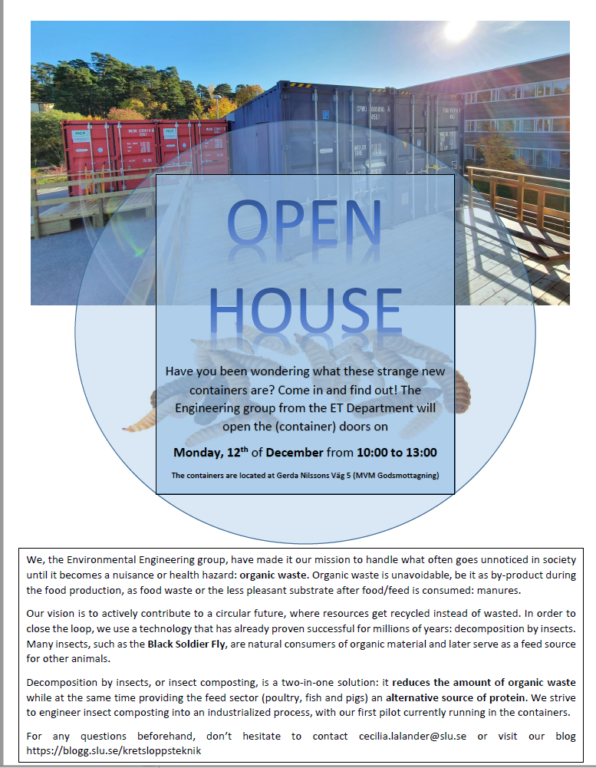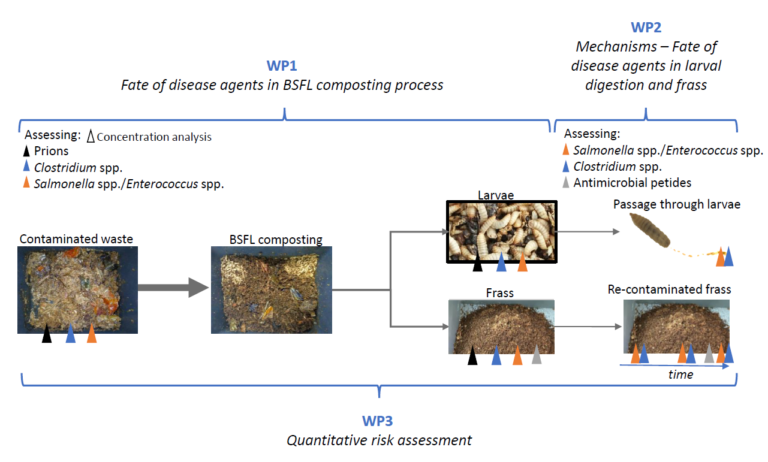We have had several studies within the group looking at the acceptability of the use of fertilizers derived from human excreta. Most of them have focused on consumers or farmers. Acceptance among these groups is generally relatively high (or at least not low). Yet, a commonly cited barrier for use of these products is reluctance within the food industry. So we set out to fill this gap by targeting grocery stores in Sweden. The food retail sector, as an intermediary between producers and consumers, is an important actor with power to influence opinions and purchasing practices. In this study, we surveyed 127 food retailers (stores) and reviewed publicly available retailer sustainability policies to assess acceptance of the use of recycled fertilizers. We gauged acceptance of three products relevant for the Swedish market – struvite, phosphorus from ash, and dehydrated urine.

I key take-away from the survey was that food safety is a major concern for these actors. Acceptance of wastewater-derived fertilizers was largely dependent on perceived risks, especially the fate of pharmaceutical residues. Overall, most respondents felt that all three recovery techniques were unlikely to be harmful either to themselves or to the environment. It was more acceptable to use products further away from human consumption. In general, struvite and phosphorus from ash were perceived more positively than dehydrated urine. We speculate that this could be because of the word “urine” in the name or the fact that they are more worried about pharmaceuticals in the urine-derived product. While retailers in Sweden are not negative to reuse, they seem unlikely to provide strong support for nutrient recirculation from human excreta unless it becomes a greater concern for the public. So overall we do not see this sector as key drivers to support a transition to more circular nutrient use, but they are not likely to lobby against it either.

Read the whole paper here:
McConville, Jennifer R., Geneviève S. Metson, and Hugo Persson. “Acceptance of human excreta derived fertilizers in Swedish grocery stores.” City and Environment Interactions 17 (2023): 100096.

 SLU has developed an innovative technology that converts human urine to high-quality solid fertiliser. On Gotland, we’ve also shown that urine can effectively fertilise barley, which can be processed further to produce beer. But there is concern about micropollutants that could be present in urine (e.g., pharmaceuticals). Through a three-year project and with funding from Stiftelsen Lantbruksforskning (Swedish farmers’ foundation for agricultural research), we aim to address this concern. First, we will do a baseline study to evaluate fate of micropollutants in the urine chain (fertiliser, barley & beer). Second, techniques will be developed to remove micropollutants so that only plant-essential nutrients are recycled back to farmland. Third, using social science methods and system dynamics modelling, support for recycling urine among food consumers will be assessed. Finally, all the evidence will be presented to stakeholders in the food industry.
SLU has developed an innovative technology that converts human urine to high-quality solid fertiliser. On Gotland, we’ve also shown that urine can effectively fertilise barley, which can be processed further to produce beer. But there is concern about micropollutants that could be present in urine (e.g., pharmaceuticals). Through a three-year project and with funding from Stiftelsen Lantbruksforskning (Swedish farmers’ foundation for agricultural research), we aim to address this concern. First, we will do a baseline study to evaluate fate of micropollutants in the urine chain (fertiliser, barley & beer). Second, techniques will be developed to remove micropollutants so that only plant-essential nutrients are recycled back to farmland. Third, using social science methods and system dynamics modelling, support for recycling urine among food consumers will be assessed. Finally, all the evidence will be presented to stakeholders in the food industry.
 My name is Ali Mehaidli. Prior to my arrival here, I was living in Finland, studying Environmental Engineering at Tampere University of Applied Sciences. At SLU, I will be working with the urine treatment research group. My focus will be on the fate and stability of nitrogen during urine dehydration treatment. My internship and thesis project began in January, and I will be here till early June.
My name is Ali Mehaidli. Prior to my arrival here, I was living in Finland, studying Environmental Engineering at Tampere University of Applied Sciences. At SLU, I will be working with the urine treatment research group. My focus will be on the fate and stability of nitrogen during urine dehydration treatment. My internship and thesis project began in January, and I will be here till early June.

